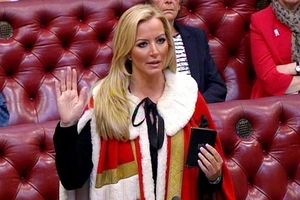Marineland, the well-known marine amusement park near Niagara Falls, has found itself at the center of a national crisis as it faces the imminent prospect of euthanizing its last remaining captive whales. On October 3, 2025, the park made a desperate appeal to the Canadian government for emergency funding, stating that without immediate assistance to feed and care for its whales, euthanasia would become the only option left. This plea comes in the wake of Fisheries Minister Joanne Thompson’s recent decision to deny Marineland’s request to export 30 belugas to Chimelong Ocean Kingdom, an aquarium in China—a move that the park says has left it with no viable alternatives.
According to The Canadian Press, Marineland’s letter to Minister Thompson was unambiguous: “Our only options at this point are to either relocate the whales or face the devastating decision of euthanasia. This is an outcome we are desperately trying to avoid.” The park emphasized that Chimelong was the only facility with enough space to take in the belugas, and that no sanctuaries or other marine parks anywhere in the world could meet the requirements set by the Canadian government for export.
Minister Thompson’s denial of the export request was rooted in a 2019 federal law that banned the captivity of whales and dolphins for entertainment purposes, as well as performances involving these animals. “I will not subject the belugas to a future performing in captivity,” Thompson stated earlier this week, as reported by Global News. The law, however, did not apply retroactively to the whales already residing at Marineland, but it did forbid breeding and effectively blocked the import or export of marine mammals, except under special circumstances where the minister deems it in the animals’ best interest.
Marineland, which has been up for sale since early 2023, closed its doors to the public in late summer 2024 and did not open at all in 2025. The presence of the whales has complicated any potential sale of the sprawling property, located just a kilometer from the iconic Horseshoe Falls. The park’s financial situation has become dire. “We are fully indebted and rapidly running out of resources to provide adequate care for the whales,” Marineland wrote in its letter to Thompson. The park has requested immediate operating funds to continue caring for the animals until a suitable relocation can be arranged.
The urgency of the situation is underscored by a grim statistic: since 2019, 20 whales—one killer whale and 19 belugas—have died at Marineland, according to a database compiled by The Canadian Press from internal records and official statements. The deaths continued into 2025, with a juvenile beluga dying in February and another beluga and a harbor seal passing away in mid-August. The park’s remaining animal residents include not only whales but also four dolphins, several seals and sea lions, and a contingent of bears and deer.
Marineland’s proposal to send the belugas to Chimelong Ocean Kingdom was, in its view, the only realistic route left. The park argued that no sanctuary—such as the long-discussed but stalled project in Nova Scotia—was available or equipped to accommodate the whales. “This leaves us in a precarious situation, as Marineland is not aware of any facility, anywhere in the world, that meets the conditions set forth by the minister for the export of these majestic animals,” the park wrote. The park also asked Thompson for help in identifying any other possible facilities that might accept the whales, but so far, no alternatives have materialized.
The legal and ethical debate over the fate of these animals is complex. While Minister Thompson has maintained that “all whales belong in the ocean,” she has also acknowledged the reality that Marineland’s whales were born in captivity and releasing them into the wild would almost certainly result in their deaths. Thompson’s office clarified, “The minister is keenly aware of the fact that the belugas can’t be released into the wild, nor has she suggested it.” The office further stated that only one export permit request had been received and rejected, but that Thompson remains open to considering other export requests on their individual merits, provided they comply with the Fisheries Act.
Marineland, for its part, has made clear that it does not fundamentally oppose the minister’s anti-captivity stance. “We understand and appreciate that the minister holds a strong belief against captivity and we do not oppose this viewpoint,” Marineland wrote. “However, it is important to recognize that these whales were born in captivity. Releasing them into the ocean would unfortunately lead to their immediate demise.” The park’s letter also set a deadline, asking for a response from Thompson by October 7, 2025. “If we do not receive a response by that date, we will have no choice but to presume that the answers to our inquiries are negative,” Marineland warned. “In such an unfortunate scenario, we will inform all stakeholders and the public accordingly and proceed with actions that will be a direct consequence of the minister’s decision.”
Minister Thompson’s office has reiterated that her authority is limited to the approval or rejection of export permits and that each application will be evaluated based on its merits. “Minister Thompson also rejects the assumptions made by Marineland in the letter in terms of what she will or won’t approve,” her office told The Canadian Press. The office also indicated that the minister is open to “looking at other decisions that really speak to the health and well-being of the whales.”
The broader context is a country grappling with the legacy of marine mammal captivity. The 2019 law that banned whale and dolphin captivity marked a turning point in Canadian animal welfare policy, but it left open the difficult question of what to do with the animals already held in facilities like Marineland. The law forced Marineland to separate its male and female belugas, effectively ending breeding at the park and further complicating the animals’ social structures and well-being.
As the deadline set by Marineland approaches, the stakes could hardly be higher. The park’s financial collapse, the lack of viable relocation options, and the strictures of Canadian law have combined to create a situation in which the fate of the last captive whales in the country hangs in the balance. The next steps—whether a last-minute government intervention, a new export proposal, or the unthinkable decision to proceed with euthanasia—will likely shape the future of animal welfare debates in Canada for years to come.
The nation, animal advocates, and the tourism industry alike now wait for a resolution, as the story of Marineland’s whales nears a critical juncture.





